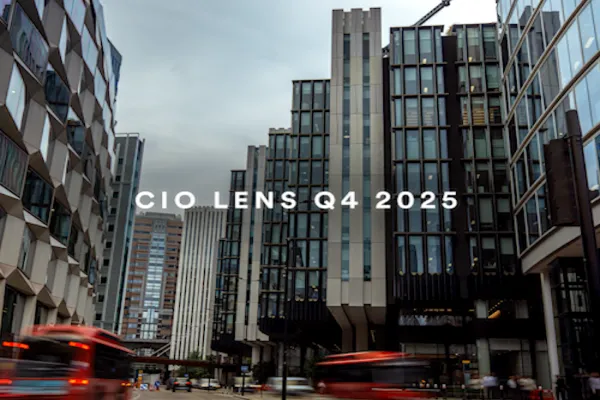Business was so good for executive search firm Heidrick & Struggles International during the late 1990s technology stock boom that it followed its dot-com clients into the IPO market. After its $66 million market debut in April 1999, the company opened new offices around the world and hired scores of recruiters. Then in March 2000 the bubble began to deflate. Heidrick was luckier than some of its clients; the firm is still solidly in business. But it has had to spend a lot of time and energy recovering and revamping its operations.
Thomas Friel, 57, is a veteran tech industry headhunter who has been at Heidrick for 26 years. He took over as CEO in 2003 and carried on a companywide restructuring begun in 2001 by his predecessor, Piers Marmion. The firm had more than 70 offices when the bubble burst; it has closed more than a dozen. Head count is down from 1,530 five years ago to 1,300 today. The latest wave of cutbacks swept Europe in the second quarter: The firm shut some of its offices in Germany and the U.K., dismissed 57 employees and installed new European managers.
The resulting $21 million in charges hit Heidrick's second-quarter earnings: It lost $5 million, compared with a $7 million profit for the same period last year (and $10 million for 2000's second quarter, the end of the boom). On a more encouraging note, revenues rose by 6 percent compared with the year-ago period. As might be expected, Heidrick's shares have been volatile, falling from $40 in March to below $25 in June and hovering at $30 in August.
The tech crash didn't leave the firm completely in the lurch, however. Last year Heidrick netted $129 million from selling pre-IPO Google shares it received from the Internet search firm as partial payment for recruiting Google CEO Eric Schmidt in 2001.
Today Friel insists the repair job is done and the outlook for Heidrick is bright. The holder of an industrial engineering degree from Purdue University and an MBA from Stanford University, Friel discussed Heidrick's past and prospects with Institutional Investor Senior Editor Justin Schack last month.
Institutional Investor: Why the restructuring, and is it all behind you?
Friel: During the late 1990s boom, we expanded dramatically around the world, especially in the technology sector, because we were the dominant player there. We overshot the top of the market and have had a couple years of cleaning up from the excesses of that period. We now strongly believe we have cleaned up pretty much all of the problems of the past and are looking to the future with a huge amount of optimism. Every metric we use to measure the business is improving, for the first time in several years.
Are you developing recurring revenue sources to counter earnings volatility?
Absolutely. We hope to see recurring revenue in the future from developing better relationships with our clients. Big global companies are trying to cut down the number of service providers they use. They can get more leverage, lower costs and higher quality work done for them that way. A big part of my strategy is driving toward these broader, deeper relationships with clients. We can provide services for our clients beyond executive search, and we're making investments in these areas. Often that work is more profitable, reliable and sustainable -- and more satisfying both for us and for the client.
What kinds of services?
We've always worked on CEO and board-level assignments. To broaden those relationships, we are building a leadership consulting business. We give assessments of individual leaders and management teams, showing how they stack up against competitors both position-by-position and as a group. We're also providing advice about succession planning, organizational structure and corporate governance. This will involve a certain amount of transformation for us. It puts us much more in the relationship business than in the transaction business. That will be much better in terms of predictability of revenue and profitability, but not everybody ends up being comfortable with the journey.
How much of your revenue comes from these sources now?
It's growing rapidly, but it's still fairly small as a percentage of the total. We expect it to be a more substantial part over the next two years. What I can say is that about half our revenue is generated at the CEO, board or C-suite level. And this new revenue is included in that total.
What's your goal for revenue from these sources, say, two years from now?
We expect it to be a very significant part of our business in the future. In some ways the measurement is a bit artificial, because the best of our search consultants have always done leadership consulting and board advisory work. We haven't always charged for it explicitly.
Where else will your revenue growth come from?
Every part of our business is growing, but emerging parts of the world will grow faster. Asia and Eastern Europe have very strong potential. We're also continuing to try to innovate. A number of years ago in the tech sector, we started an equity billing program, which allowed young, cash-limited companies to use pre-IPO equity to compensate us. We're also working with new types of clients. Private equity firms and hedge funds are a major new segment for us, as they create companies, take over companies and staff start-ups.
How does your business differ in Asia and Eastern Europe?
It can be very different. In China, for example, there really isn't a cadre of experienced leaders who can run big global enterprises. But demand is high because China is growing so fast. Companies there often need to hire big numbers of young, Chinese-speaking citizens in a short period of time. In response to this need, we've created something called the China talent bench project. We work with a client on identifying 50 to 100 people that they can hire quickly rather than on one spot at a time.
Has the recent heightened scrutiny of corporate governance affected the search business?
The level of seriousness, commitment and diligence that boards are taking around everything they do has gone up. It's a trend that we welcome.
Are companies more likely to use search firms in the Sarbanes-Oxley era?
Yes. Generally, even if a board is convinced that it has an internal candidate, the directors want to be sure. We're seeing boards that are more prepared now to spend what is a very small amount of money, considering the stakes involved, to get a professional, independent assessment of that internal candidate, benchmarked against external candidates.
What about increased turnover for CEOs and CFOs?
That's one of several factors that are positive for our business. The tenure of CEOs in listed companies has come down from around ten years a generation ago to two to three years on verage now. A good portion of that turnover will result in executive searches, for us or someone else. Demographic trends are working in our favor too. The number of people in the U.S. in the prime senior management age range of 45 to 60 is declining as the baby boomers age. On top of this, people are retiring earlier than the previous generation did. Another big plus is that the jobs are just infinitely harder. Being CEO of a public company is a very hard job.
A top recruiter at a competitor was accused recently of making off with company files and starting his own search firm. How big a concern is this sort of thing in the search business?
We have been fortunate that we haven't had a major incident like this. We're not immune to it. It could happen here. But we're very careful. We treat our data as a very valuable asset. We monitor the use of it and go to great lengths to protect it. Everyone who joins the firm signs a document covering use of our material. We are prepared to go aggressively at anybody who either uses it improperly or compromises it.
Will you try to grow by acquisition?
We will grow by acquisition if the economics are right and if the cultural fit with our company is good. We're looking very carefully and rigorously at acquisitions in the nonsearch area that would fill out some of our leadership consulting activities.
There's been speculation that you would be an attractive takeover target.
We're certainly not seeking to be acquired. Having said that, any CEO has to say that a fundamental objective is to enhance shareholder value. We believe we can do that very adequately without any help from anybody. But if there is either a collaboration or a partnership or something else out there that could help us along, certainly we'd go do it.





